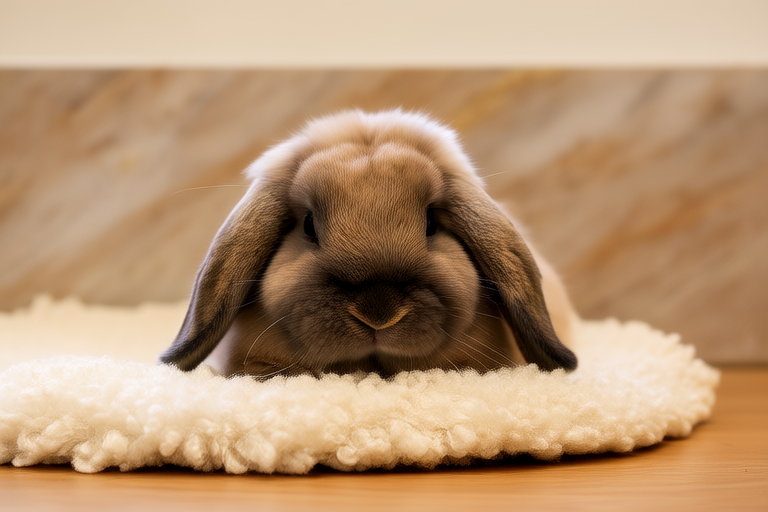Meet the Lovable Lop: Tips for New Rabbit Owners
Welcome to the wonderful world of rabbit ownership! If you’re considering adopting a pet rabbit, the lop-eared variety might be just the right fit for your family. Known for their gentle demeanor and affectionate nature, lop rabbits are among the most popular choices for first-time rabbit owners. With their floppy ears and charming personalities, these rabbits are sure to win your heart. This guide will provide you with all the essential information you need to care for your new furry friend.
Understanding Your Lovable Lop
Lop rabbits come in various breeds, including English Lops, French Lops, and Dwarf Lops, each with unique characteristics. What they share is their endearing appearance and friendly temperament. These rabbits are generally calm, making them ideal for households with children or other pets. Their laid-back nature means they enjoy companionship and can form strong bonds with their human families.
Dietary Needs
Proper nutrition is crucial for maintaining your lop’s health and well-being. A balanced diet primarily consists of hay, fresh vegetables, and a small amount of pellets. Timothy hay is particularly beneficial as it aids digestion and keeps teeth worn down. Fresh vegetables such as carrots, broccoli, and leafy greens should be offered in moderation. Always introduce new foods gradually to avoid digestive upset. Pellets should be high-quality and formulated specifically for rabbits, ensuring they meet your lop’s nutritional requirements.
Exercise and Mental Stimulation
Like all rabbits, lops require daily exercise to stay healthy and happy. Providing a spacious cage with plenty of room to move around is essential. However, it’s equally important to allow your rabbit time outside its enclosure in a safe, rabbit-proofed area. This space should be free from toxic plants and have no gaps that could trap your pet. Rabbits enjoy exploring and playing, so consider providing tunnels, chew toys, and other enrichment items to keep them mentally stimulated.
Grooming and Hygiene
Grooming is an integral part of rabbit care, especially for long-haired lop breeds. Regular brushing helps remove loose fur, preventing matting and hairballs. Use a soft brush or comb suited for rabbits to gently stroke your pet’s coat. Bathing should be avoided unless absolutely necessary, as it can stress rabbits and disrupt their natural oils. Instead, focus on cleaning any dirty areas with a damp cloth. Clipping nails and cleaning ears should also be part of your grooming routine. Consult your veterinarian if unsure about how to perform these tasks safely.
Housing Your Lovable Lop
Choosing the right living environment for your lop is vital for its comfort and happiness. The cage should be large enough to allow movement and include areas for sleeping, eating, and eliminating. A multi-level setup can offer more space and entertainment options. Bedding material should be absorbent and safe, like paper-based products or straw. Avoid cedar shavings, which can be harmful to rabbits. Additionally, ensure the cage is placed in a quiet area away from direct sunlight and drafts.
Socializing and Training
Rabbits are social animals and thrive on interaction with their human families. Spend quality time with your lop by petting, talking, and playing together. Gently handle your rabbit from an early age to help it become comfortable with human touch. Training can also be enjoyable and rewarding. Positive reinforcement techniques, such as offering treats and praise, work best for teaching commands or tricks. Consistency is key in establishing routines and boundaries, helping your lop feel secure and well-behaved.
Common Health Issues and Veterinary Care
While lop rabbits are generally healthy, some common health issues may arise. Dental problems, often caused by improper diet or genetics, can lead to pain and difficulty eating. Signs include drooling, reluctance to eat, and weight loss. Ear infections are another concern, particularly for lop breeds with larger, floppier ears. Symptoms include head shaking, scratching, and discharge. Regular veterinary check-ups are crucial for early detection and treatment of these conditions.
When to consult a vet:
- If your rabbit shows signs of illness, such as lethargy, changes in appetite, or unusual behavior.
- For annual check-ups and vaccinations.
- In case of injuries, especially those involving the eyes, ears, or feet.
- To discuss spaying or neutering, which can prevent certain cancers and behavioral issues.
Remember, a happy, healthy lop requires attentive care and a loving home. By following these guidelines, you’ll be well on your way to enjoying a fulfilling relationship with your new rabbit companion.
